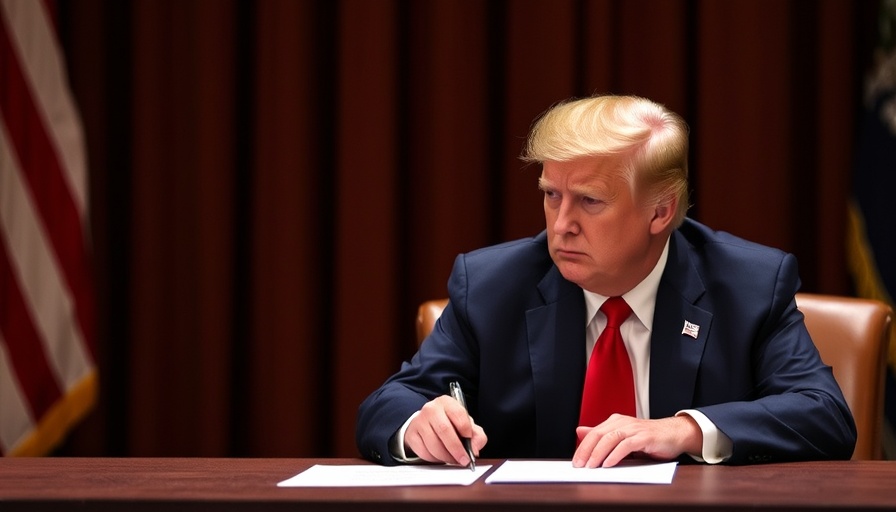
Trump's New Executive Orders: A Shift in AI Governance
In a bold move at the 'Winning the Race' summit, former President Donald Trump signed a series of executive orders aimed at reshaping the landscape of artificial intelligence (AI) in the United States. These directives, which include targeting what the administration labels as 'woke' AI models, signal a significant shift in how AI will be developed, funded, and governed.
The Concept of 'Woke' AI: Implications for Developers
Trump's rhetoric around 'woke Marxist lunacy' reflects a growing concern among certain political figures regarding the influence of diversity, equity, and inclusion (DEI) principles in technology. By mandating that AI models funded by the federal government remain free from 'ideological dogmas,' the administration aims to ensure that technology is developed without the supposed biases that accompany these frameworks. This leaves AI developers in a challenging position, pushing them to navigate federal expectations while maintaining innovative standards.
Environmental and Regulatory Changes: Fast-Tracking AI Infrastructure
In addition to regulating ideological biases, Trump's orders also include provisions to expedite permitting for AI infrastructure projects like datacenters. This aligns with a broader agenda to establish the U.S. as a dominant force in the global AI landscape. By reducing regulatory burdens, the administration hopes to accelerate the deployment of AI technologies, potentially impacting everything from machine learning fundamentals to complex deep learning applications.
Future Trends in AI: A Landscape of Innovation
The implications of these executive orders raise important questions about the future of artificial intelligence. As the focus shifts towards boosting U.S. tech industry competitiveness, the landscape of AI development could see the emergence of more basic AI concepts and frameworks that align with the administration's directives. This environment may promote not only innovation but also competition, as companies race to adapt to the new guidelines while resisting potential ideological pushes.
Understanding the Ethical Considerations in AI Deployment
The approach taken by Trump's administration reflects broader societal debates about the role of AI and its ethical implications. With AI's increasing presence in everyday life, understanding AI and its impacts on society is crucial. These orders could lead to tensions between technological advancement and societal readiness to embrace AI without a comprehensive understanding of its ethical ramifications.
As we explore the effects of these executive orders on the evolving tech landscape, it’s vital for stakeholders, from developers to government officials, to engage in ongoing discussions about the values integrated into AI technologies. With AI predicted to be one of the most influential forces in the coming years, drawing attention to both its potential and its pitfalls is essential.
In conclusion, Trump's executive orders signal not just a regulatory shift but a potential reshaping of the tech landscape, urging a reevaluation of what AI means for society. Staying informed and engaged with these changes may empower more nuanced dialogues about the future of technology and its ethical role in our lives.
 Add Row
Add Row  Add
Add 




Write A Comment